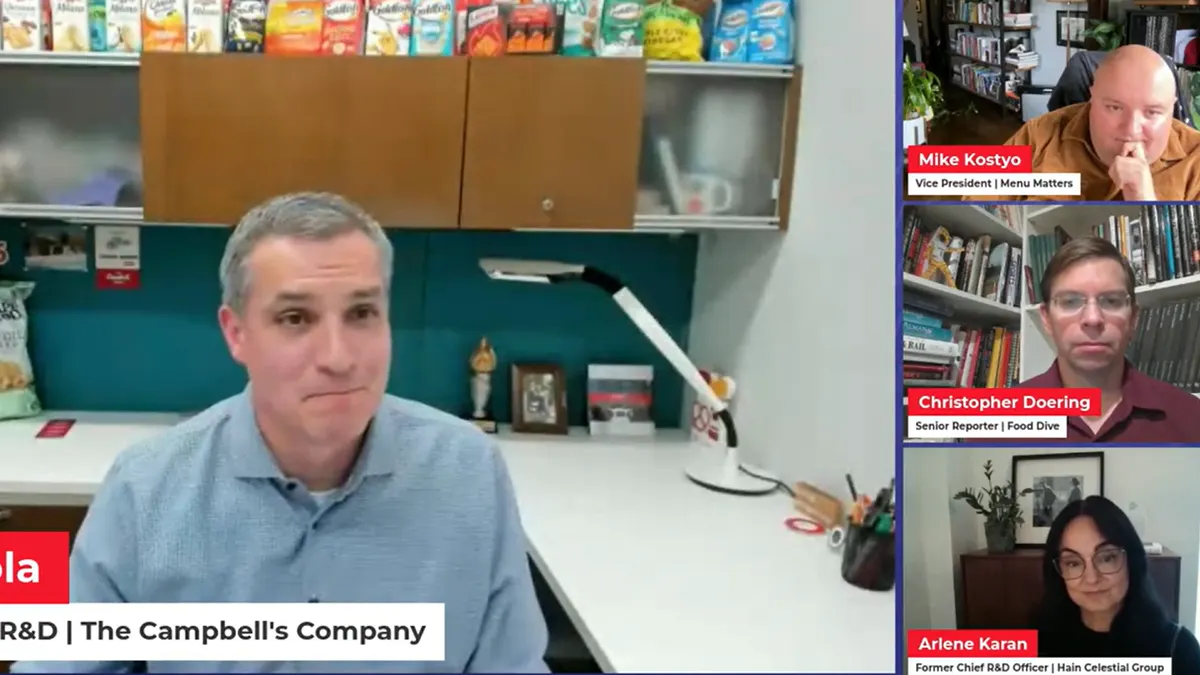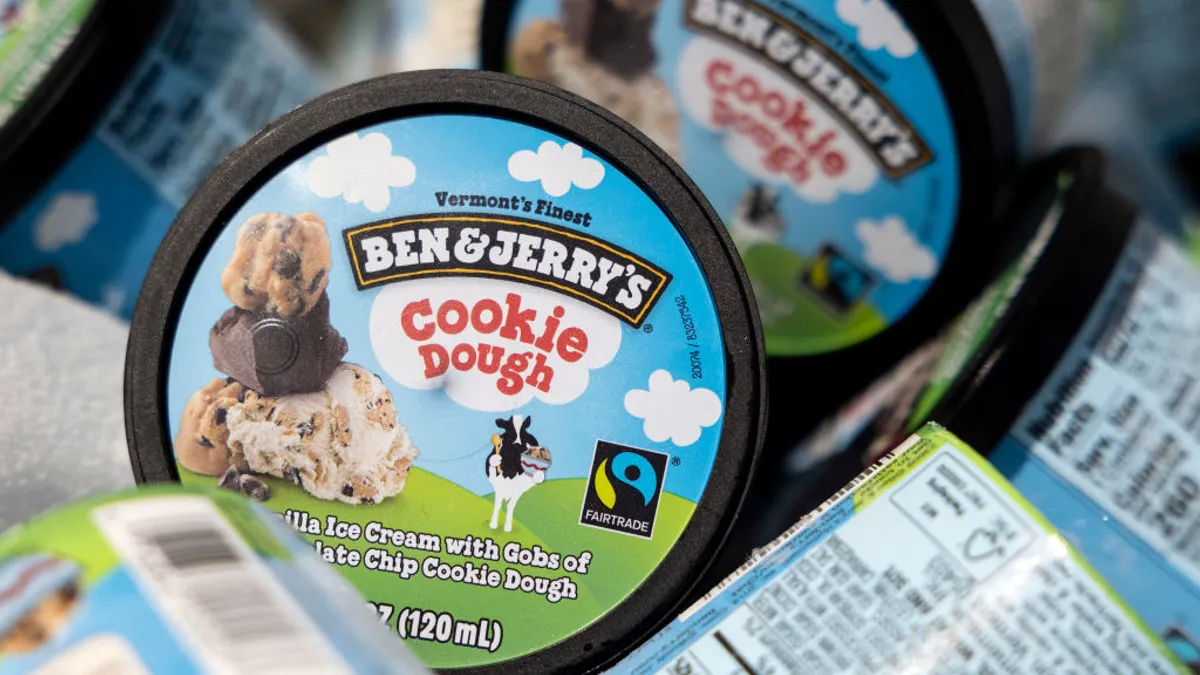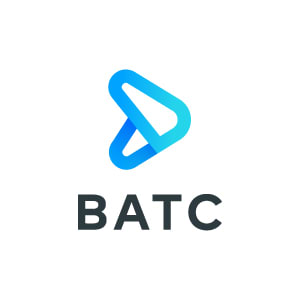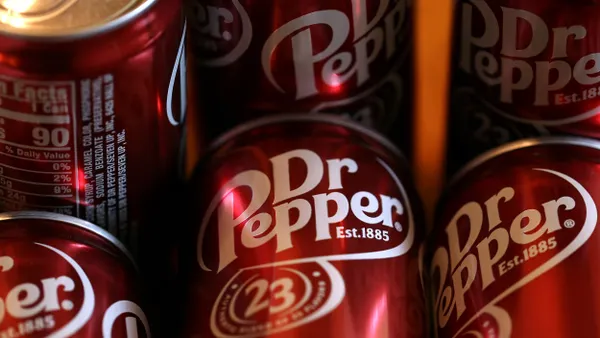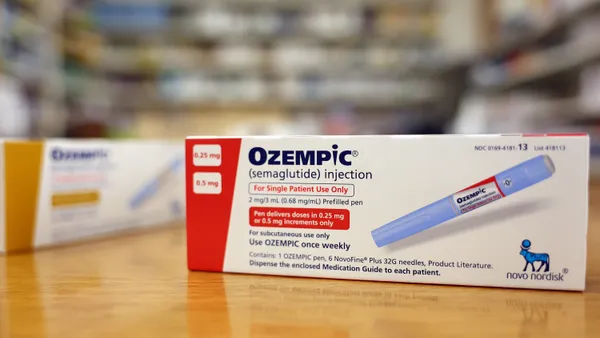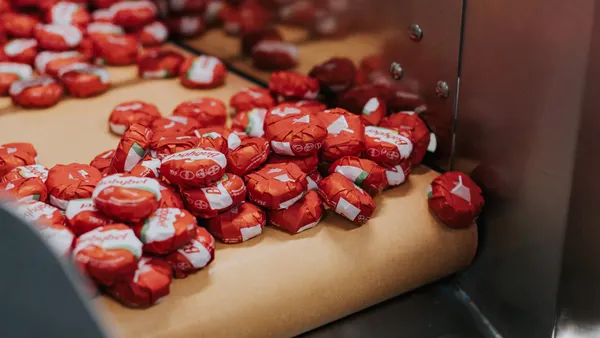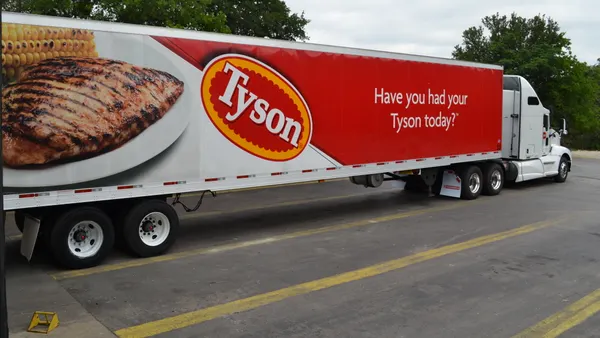Dive Brief:
- Berry growers and trade associations across North America just announced an industry-wide goal to use 100% recycle-ready packaging by 2025. The collaboration includes a commitment to new label standards and an agreement to encourage consumer recycling.
- The groups who are making the pledge include the California Strawberry Commission, the North American Blueberry Council, Asociación Nacional de Exportadores de Berries in Mexico, members of the National Berry Crops Initiative and South American exporters like Argentinean Blueberry Committee, Chilean Blueberry Committee and Peru's ProArandanos.
- Kasey Cronquist, president of NABC, said in a statement that teaming up allows growers, shippers and industry partners to "attain a goal that no one organization could accomplish alone.”
Dive Insight:
As the food industry faces rising consumer pressure for more sustainability, the berry industry is teaming up to give shoppers what they want. With five years on the clock to achieve their pledge, working together with an industry-wide goal could be more effective than just one company making a promise because it can help hold these producers accountable.
In the 1990’s, many berry producers started using plastic packaging in the shape of a vented box with a hinged lid, known as a clamshell. This packaging allowed berry producers to convert recycled plastic water bottles into their containers. Berry clamshells are currently among the food packages that use the most California post-consumer recycled content in the U.S., according to an issue paper from the industry. But now berry producers said that changes in regulation about recycled content of plastic containers pushed them to work together to ensure that their clamshells are recycled and reprocessed into new packaging.
Developing environmentally friendly food packaging that keeps products fresh, endures temperature changes and remains affordable is not easy. But when an industry works together some of those obstacles could be avoided. The company said in the release that this plan will allow them to reduce costs and stimulate a closed-loop circular economy that recycles berry clamshells back into new clamshells rather than using water bottles so the industry can ensure they are recirculating packaging. A resource website was also launched to give more information about sustainable berry packaging, and the How2Recycle label will be found on packaging to give consumers recyclinginformation.
The berry groups are not calling for an end to plastic packaging, which it could continue to face criticism for in the years to come. Recycle-ready just means the industry put in place measures to maximize recyclability for the packaging, according to The Packer. Food packaging is one of the top causes of plastic pollution and consumers have increasingly criticized food companies for packaging waste. One online petition criticized Driscoll's for its plastic packaging of berries and asked for a more sustainable solution.
But berry producers argue that their clamshell packaging protects the berries from damage and contamination, while reducing waste because it uses reusable materials. On the resource website, the berry shippers say they will also foster the development of compostable paper-based packaging and explore innovation of new materials.
Both shoppers and investors are looking for more brands to take initiative on environmental issues, leading more companies to make pledges and devote funds to sustainable packaging initiatives. A number of other major food makers are developing their own recyclable packaging programs and pledges, including Unilever, Mars, Mondelez and Danone. Nestlé also recently announced plans to spend as much as $2.1 billion to shift its packaging from virgin plastics to food-grade recycled plastics and increase its development of more sustainable solutions.
But the berry industry isn't the first to come together with competitors for sustainability goals. Late last year, the Coca-Cola Company, Keurig Dr Pepper and PepsiCo launched the "Every Bottle Back" initiative to reduce the industry's use of new plastic and pledge $100 million to recycling groups. It seems that sustainability may be an area that continues to push industry competitors together, rather than apart.



